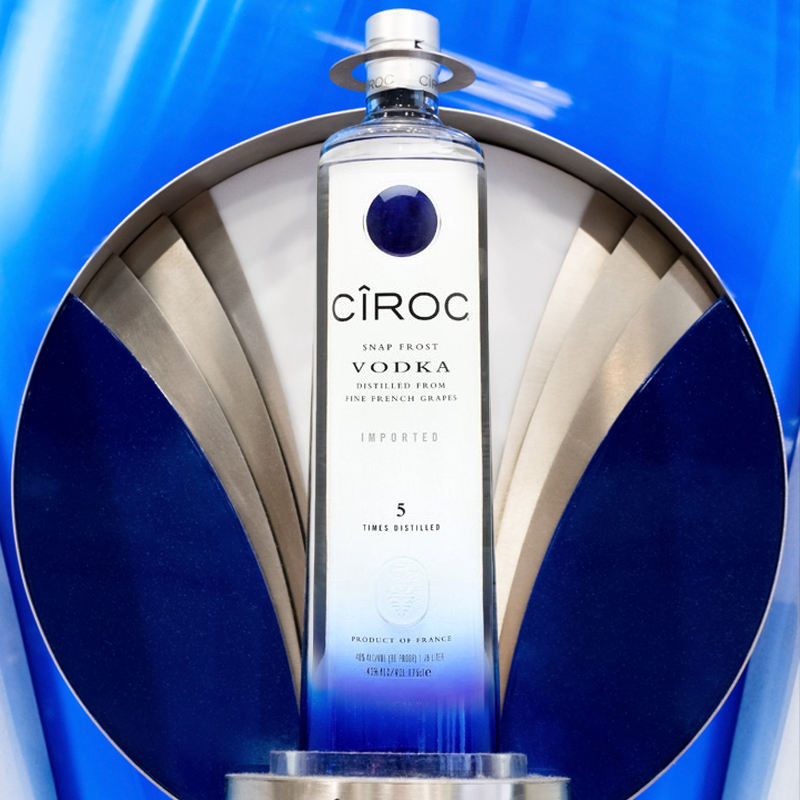CHEERS | spirits

Neutrality is a myth
In a recent top 10 list of the most consumed alcohol products published by The Drinks Business, vodka occupied the number 6 spot, with whisky, baiju, liqueurs, wine and beer in the top five positions. Here’s some interesting information about this popular white spirit.

The United States remains the single biggest market for vodka – and has been since 1970. This is somewhat surprising since the origins of the spirit are European, eastern European specifically, and popular culture would have you believe that Russians, Poles, Czechs and Slovaks are the most prolific consumers.
Statistics and sales figures don’t lie and Americans accounted for 76.9 million cases by 12 bottles (or the standard 9 litres) in 2022, according to the Distilled Spirits Council of America. Vodka’s global market size in American dollars is $25.98 billion. While that might seem like an astronomical sum when converted to South African rands, at an exchange rate of R18.80 to the dollar it is R488.42 billion - or about three times the initial budget to build Medupi and Kusile power stations, it remains relatively small potatoes when compared with the top selling global liquor product: beer. Beer’s global annual sales in 2022 clocked in at $793.4 billion!
And yes, the expression “small potatoes” was used intentionally because there remains an abiding myth that vodka is distilled from potatoes – one that needs to comprehensively tossed upon the scrap heap as busted! Most vodka the world over is made by distilling cereal grains – exactly like whisky is. The grains in question range from sorghum, corn (maize or mielies in SA terms), rye or wheat. It can also be made from potatoes, molasses (like rum) or soybeans. It should also be stated that very often wine is distilled to produce vodka.
What makes vodka so popular is its alleged neutrality or lack of overt character. When you drink a gin and tonic it’s fairly obvious that there are botanicals lending character to the drink with juniper the most obvious. Likewise, rum, whisky and brandy are all quite individual in their respective flavours. But it’s this alleged neutrality that makes vodka such a great spirit – specifically for mixing in cocktails. The ability to be used in a martini, whether shaken, stirred or not, as well as in a Screwdriver, Cosmopolitan, Bloody Mary or simply straight with tonic is one of the reasons the world loves it.

Smirnoff is probably the most recognised brand since it sells the most but Stolichnaya is the brand most frequently linked with Russia. Interesting snippet: as Wikipedia states, “There are two versions of the vodka: the version found outside Russia is made in Latvia, while the version found inside Russia is made there. With the dissolution of the Soviet Union the ownership of Stolichnaya has been disputed between the Russian state-owned FKP Soyuzplodoimport and SPI Group, a private company chartered in Luxembourg. SPI Group have sold their version as Stoli since 2022.” One of the reasons for the name change was, of course, the fallout from the Russian invasion of Ukraine in February 2022.

When it comes to popular brands, most are grain-based. Absolut, the Swedish brand which launched thousands of bottles purely based on its popular bottle design and excellent ad campaigns, is from grain – as is Belvedere, which is from Polish rye specifically. Grey Goose? French winter wheat while Dutch Ketel One is also wheat-based. Ciroc is often cited for how well it performs in CHEERSmag’s tastings and it’s made from grapes which lend a gentle fruity nuance to it. The fact that it’s distilled five times makes it silky smooth.
Rye vodka is considered the richest, most intense for aromatics and yes, flavour. It’s powerful with gently nutty notes and lingering aftertaste. Wheat vodkas tend to be smoother with better mouthfeel overall.
Interestingly, vodka made from potatoes is actually more mild and somewhat blander in flavour but the spirits experts who know it, state that it has a thicker, more dense and “heavier” mouthfeel or texture than grain vodkas.
Anyone wanting to impress their mates with some useless trivia can trot out the factoid that it takes five kilogrammes of cooked potato to make enough spirit for one bottle of vodka!